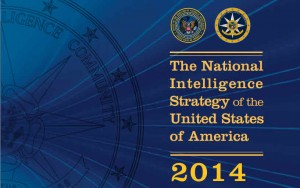“Everybody knows that if you are doing business in China, in the 21st century, you don’t bring anything with you. That’s ‘Business 101’ — at least it should be.” — Jacob Olcott, a cybersecurity expert at Good Harbor Consulting
 From the New York Times: When Kenneth G. Lieberthal, a China expert at the Brookings Institution, travels to that country, he follows a routine that seems straight from a spy film.
From the New York Times: When Kenneth G. Lieberthal, a China expert at the Brookings Institution, travels to that country, he follows a routine that seems straight from a spy film.
He leaves his cellphone and laptop at home and instead brings “loaner” devices, which he erases before he leaves the United States and wipes clean the minute he returns. In China, he disables Bluetooth and Wi-Fi, never lets his phone out of his sight and, in meetings, not only turns off his phone but also removes the battery, for fear his microphone could be turned on remotely.
He connects to the Internet only through an encrypted, password-protected channel, and copies and pastes his password from a USB thumb drive. He never types in a password directly, because, he said, “the Chinese are very good at installing key-logging software on your laptop.”
What might have once sounded like the behavior of a paranoid is now standard operating procedure for officials at American government agencies, research groups and companies that do business in China and Russia — like Google, the State Department and the Internet security giant McAfee. Digital espionage in these countries, security experts say, is a real and growing threat — whether in pursuit of confidential government information or corporate trade secrets.
“If a company has significant intellectual property that the Chinese and Russians are interested in, and you go over there with mobile devices, your devices will get penetrated,” said Joel F. Brenner, formerly the top counterintelligence official in the office of the director of national intelligence. . . . [Read the Rest]
QUOTES
“The Chinese are very good at covering their tracks. In most cases, companies don’t realize they’ve been burned until years later when a foreign competitor puts out their very same product — only they’re making it 30 percent cheaper.” — Scott Aken, a former F.B.I. agent who specialized in counterintelligence and computer intrusion
“We’ve already lost our manufacturing base. Now we’re losing our R.& D. base. If we lose that, what do we fall back on?” — Scott Aken, a former F.B.I. agent
“We operate [when traveling to China] under the assumption that we will inevitably be compromised.” — Tom Kellermann, chief technology officer of AirPatrol, a company based in Columbia, Md., that specializes in wireless security systems
“In looking at computer systems of consequence — in government, Congress, at the Department of Defense, aerospace, companies with valuable trade secrets — we’ve not examined one yet that has not been infected by an advanced persistent threat.” — Mike McConnell, a former director of national intelligence











